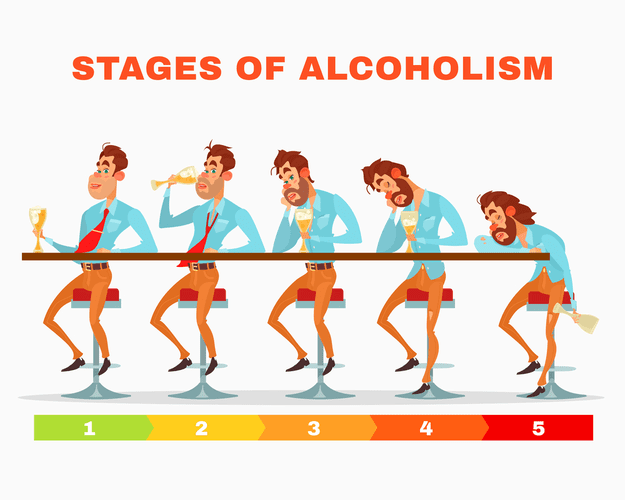Genetic risk factors are to a large extent shared across substances [46]. It has been argued that a genetic contribution cannot support a disease view of a behavior, because most behavioral traits, including religious and political inclinations, have a genetic contribution [4]. This statement, while correct in pointing out broad heritability of behavioral traits, misses a fundamental point. The fact that normal anatomy shapes healthy organ function does not negate that an altered structure can contribute to pathophysiology of disease. Critics further state that a “genetic predisposition is not a recipe for compulsion”, but no neuroscientist or geneticist would claim that genetic risk is “a recipe for compulsion”. However, as we will see below, in the case of addiction, it contributes to large, consistent probability shifts towards maladaptive behavior.
On the other hand, some people still believe that since a person can choose whether or not to use drugs, addiction is not a disease but instead constitutes a moral failing because drug use is ultimately a personal choice. People who hold this view of addiction may argue that addicts are dangerous and worthy of blame for their struggles. This model says that a person with a substance use disorder is not responsible for their addiction, but they are responsible for fixing it. The focus is on self-reliance, recognizing personal limitations, and seeking help when needed. This model says that a person with a substance use disorder is responsible for creating their problems, but not responsible for solving them. This model says that people are responsible for creating and solving their problems.
How to Fix America’s Addiction Crisis
We know the success rate of attempts to quit smoking without any support are very low. With repetition, these bursts of dopamine tell the brain to value drugs more than natural rewards, and the brain adjusts so that the reward circuit becomes less sensitive to natural rewards. This can make a person feel depressed or emotionally “flat” at times they aren’t using drugs.1 If natural rewards are a plate of broccoli, drugs are a huge bowl of ice cream, and broccoli is even less appetizing after ice cream. The good news on the methadone front is that lawmakers have a bill right now, the Modernizing Opioid Treatment Access Act. And what it would do is it would allow any doctor who is board certified in addiction medicine to prescribe methadone. And it would allow pharmacies to carry methadone and to dispense it to people who have a prescription for opioid use disorder.

When addiction is treated as a disease, people who are living with addictions have the option to get treatment. But even if someone lacks willpower or loses willpower over time, certain therapies like cognitive-behavioral therapy (CBT) will https://en.forexdata.info/the-most-common-causes-of-bruising-after-drinking/ help them cope with and manage their addiction. In almost every case, a person with a substance use disorder needs professional treatment. As strong and determined as someone might feel, willpower is rarely enough to overcome an addiction.
nature.com sitemap
What starts out as a voluntary choice gets quickly encoded in the neural circuity and relegated to automatic processes that leave little room for conscious control. Modern understanding of brain plasticity shows repeated behaviours form strong paths in the brain. This suggests drug problems might be more of a habit ingrained in the brain by repeated reinforcement of behaviours. Those behaviours are influenced by factors such as biology, the social and environmental situation, and upbringing. A broader definition of a disease would be an “abnormal” condition of some sort – which would also place mental health issues in the category of disease.

These environmental factors critically include availability of drugs, but also of healthy alternative rewards and opportunities. As we will show, stating that brain mechanisms are critical for understanding and treating addiction in no way negates the role of psychological, social and socioeconomic processes as both causes and consequences of substance use. To reflect this complex nature of addiction, we have assembled a team with expertise that spans from molecular neuroscience, 12 Sample Farewell Letters Format, Examples and How To Write? through animal models of addiction, human brain imaging, clinical addiction medicine, to epidemiology. What brings us together is a passionate commitment to improving the lives of people with substance use problems through science and science-based treatments, with empirical evidence as the guiding principle. The view that substance addiction is a brain disease, although widely accepted in the neuroscience community, has become subject to acerbic criticism in recent years.
Seeking fitspiration on social media?
Diagnosis was stable in severe, treatment-seeking cases, but not in general population cases of alcohol dependence. The version of a gene you’re born with can be modified in many ways before it becomes a functional protein, including exposure to alcohol and drugs. Rather than discouraging researchers, this complexity is empowering because it provides evidence that changes to gene expression in your brain aren’t permanent.
As you likely know, addictive acts occur when precipitated by emotionally significant events. They can be prevented by understanding what makes these events so emotionally important, and they can be replaced by other emotionally meaningful actions or even other psychological symptoms that are not addictions. Addictive behavior is a readily understandable symptom, not a disease. I have made peace with the idea that I am the kind of person who should not drink, at least for today.
Is Addiction a Disease or Choice?
Based on these definitions, then, it is proposed that addictions should indeed be considered diseases. They are clinically relevant negative states (“signs and symptoms”) following from vulnerability traits that intersect with diverse factors (“etiologic agents”) to yield replicable neurobiological changes (“anatomical alterations”). They share characteristics with other medical diseases, yet have their own unique features. As with type II diabetes, hypertension and many cancers, there are genetic, biological and environmental influences. As with Tourette syndrome, patients can inhibit their compulsive behaviours, yet sustaining these choices is difficult and contextually modulated. Finally, in this view, an addiction is only 1 possible expression of the pre-existing traits.
- Addiction encompasses all types of substances, including prescription and illicit drugs, alcohol, nicotine, and marijuana.
- To further complicate matters, some people are more prone to addiction than others.
- One of the biggest problems is that we don’t have enough treatment options available.
The debate over whether addiction is a disease or a choice is a complex and often polarizing topic in the realm of mental health and substance abuse. On one side, some argue that addiction is a choice, not a disease, emphasizing personal responsibility and the role of individual decision-making in initiating drug use. However, this perspective often overlooks the intricate psychological and biological factors that contribute to addiction. The opposing view, which considers drug addiction a disease, highlights how addiction can alter brain chemistry and function, suggesting that it’s not merely a matter of choice.